6 ways to make world travel less scary
Click here for more Log Off episodes.
I run this joint. Don’t know where to start? Let me show you around:
Click here for more Log Off episodes.
 I was interviewed recently on how parents can spend more quality time with their children. This is what I said:
I was interviewed recently on how parents can spend more quality time with their children. This is what I said:
“I used to think I needed to have these elaborately planned and profound experiences with each of my children,” says Blake Snow, a time expert, father of five, and author of Log Off: How to Stay Connected after Disconnecting. “But the truth is I was overthinking the issue of quality time.
“Now I just remove all distractions, especially my phone, and spend time with one of my kids while riding bikes, playing Uno, teaching them chess, walking the dog, or even taking them on an errand to the grocery store or post office. The trick is showing your child that you deem them worthy of your time. Admittedly you’re probably busy—we all are. Which is why our undivided attention means the world to our children.”

APRIL 2018 (Costco Connection)—Smart people don’t make better decisions because they’re necessarily more intelligent. They make smarter decisions, research shows, because they habitually do the following: Continue reading…
See also: How to succeed: “No” means ask another. For more Log Off episodes, click here
 I was interviewed by Motley Fool recently (and syndicated to MSN) about one of the quietest (if not greatest) side hustle’s of my career: producing slide decks on the side to the tune of $30,000 over fifteen years.
I was interviewed by Motley Fool recently (and syndicated to MSN) about one of the quietest (if not greatest) side hustle’s of my career: producing slide decks on the side to the tune of $30,000 over fifteen years.
“After learning that one of my friends was paid very well to produce a PowerPoint presentation, I wondered if I could do something similar on the side,” Snow said. “Determined to find out, I launched a professional looking website for a few hundred dollars — then waited.”
It took 18 months for someone to finally order, but then the orders just kept coming. “Every one or two years, someone new — and a few repeat customers — would order another presentation,” Snow said.
Over 15 years, he was able to earn around $30,000 from producing presentations. In his words: “Not bad for the few hundred dollars I spent on website design and hosting.”
Full story here. Thanks for including my story, Christy.

I was recently interviewed by Almost Fearless about traveling with family. This is what I said: Continue reading…
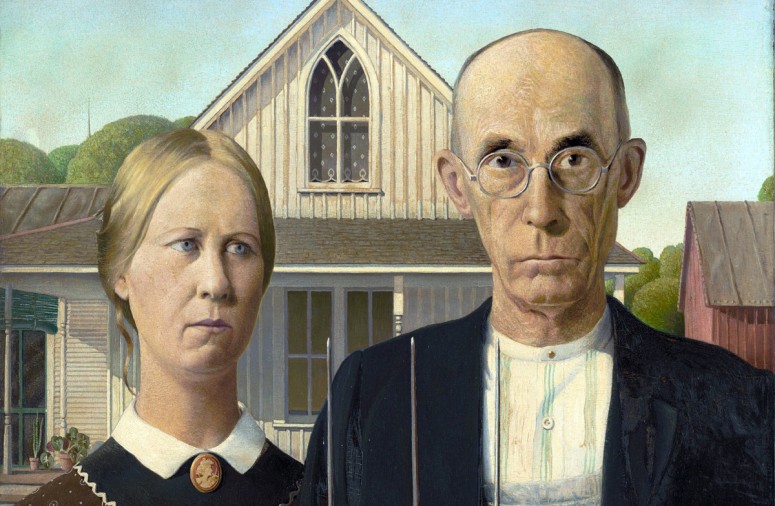
Grant Wood/Wikimedia Commons
As a leading psychologist, Shawn Achor has spent two decades studying happiness. His bona fides include award-winning researcher and teacher at Harvard, best-selling author on positivity, and popular TED lecturer.
So when he speaks you should listen. For instance, Achor asserts our circumstances — including age, race, gender, social status, and wealth — only account for 10% of our happiness. The rest is determined by our genetic baseline for happiness (i.e. optimist vs pessimist) and our individual intentions, including the way we spend our time and the things we ponder.
Obviously, happiness means different things to different people. But there are plenty of standardized things we can do to boost our chances of finding it. Somethings such as knowing oneself, learning how to forgive, and balancing the personal, professional, and social demands on our time can be life-long pursuits.
But other happiness-building attributes are quite easy, Achor argues. In order from least difficult to most difficult, they are as follows: Continue reading…

Courtesy Warner Bros.
“For all of the other languages, the researchers discovered, the more data-dense the average syllable was, the fewer of those syllables had to be spoken per second — and thus the slower the speech. English, with a high information density of .91, was spoken at an average rate of 6.19 syllables per second. Mandarin, which topped the density list at .94, was the spoken slowpoke at 5.18 syllables per second. Spanish, with a low-density .63, ripped along at a syllable-per-second velocity of 7.82. The true speed demon of the group, however, was Japanese, which edged past Spanish at 7.84, thanks to its low density of .49. Despite those differences, at the end of, say, a minute of speech, all of the languages would have conveyed more or less identical amounts of information.” via TIME
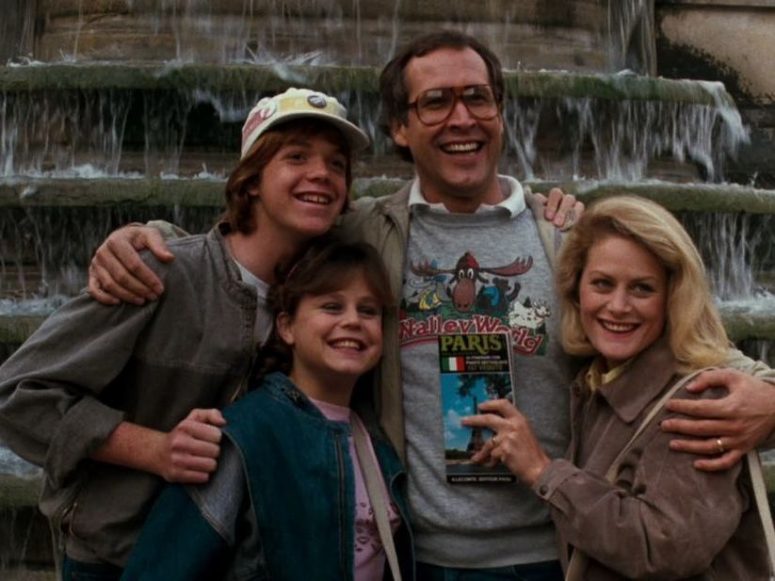
I was interviewed recently by The Atlantic about traveling with children, as an enthusiast of both endeavors. This is what I said:
Should parents forgo enrolling their children in summer school in favor of travel?
“While classwork is important, I haven’t encountered any evidence suggesting it’s more educational than actual travel,” says Blake Snow, a father of five, avid traveler, and author of Log Off: How to Stay Connected after Disconnecting. “In fact, the opposite is true; travel is a wonderful mechanism for educating kids both big and small.” (NOTE: My politically incorrect answer would be an enthusiastic, “Hell yes, you should, and maybe don’t ever send them to summer school unless they’re really behind!)
Do you worry about your children’s safety while traveling?
“I do, but not to the point of preventing us from visiting places that the State Department deems safe,” says Snow. “We’ve even gone to places with special advisories, such as Mexico and South Africa, so long as the alerts are no worse than ‘be extra careful.’ The world really is a lot safer than our irrational fears make it out to be, but I do believe in taking precautions and trusting what the State Departments says when it comes to keeping American safe while abroad.” Continue reading…
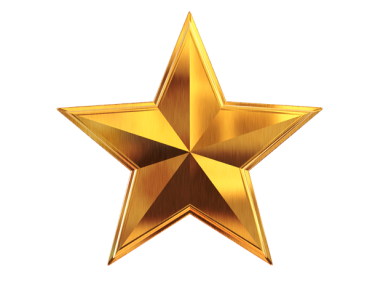 Writes Bryce in his 5/5 star review:
Writes Bryce in his 5/5 star review:
“Log Off is chock full of delicious nuggets of behavioral wisdom. Concise and engaging, Snow lays bare a decade worth of personal experience, research, and experimentation. This personal journey is tied to, and sometimes driven by, recognized scientific study, and does not sugar coat any of the author’s personal struggles or failings. This honesty and frank vulnerability creates a narrative that is both relatable and inspiring, and I highly recommend this read to any connected individual seeking more meaning and focus in their life.”
Thank you, Bryce. I can tell by your writing that your read a lot, so it means a lot that you liked my book as well as you stated. High five!
With exception to my non-bylined writing for Fortune 500 companies, here’s what I published this month, mostly related to my new book:
Media coverage for my new book, Log Off:
Thanks for reading and sharing what you liked.
In an effort to promote my new book, Log Off: How to Stay Connected after Disconnecting, I’m giving away 25 Kindle and 25 audiobook copies on a first come, first serve basis. Email inbox@blakesnow.com for download instructions. All I ask in return is that you review the book on Amazon.com, which helps spread the word. Thank you.
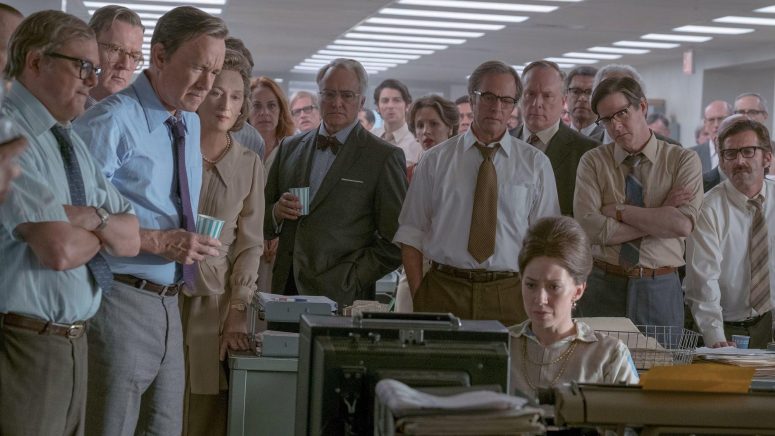
My wife and I watched the critically-acclaimed The Post recently at our local theater.
Directed by Steven Spielberg and starring Tom Hanks and Meryl Streep, the movie is about how The Washington Post, namely its brave publisher Katharine Graham, decided to publish the controversial Pentagon Papers in 1961.
Although the movie kept me engaged with strong acting, tight tension, and fun twists, I deem it good but not great. Here’s why: Continue reading…
In case you didn’t know, Log Off: How to Stay Connected after Disconnecting—written by yours truly and narrated by the chocolatey voice of Scott Fletcher—was released as a two and a half hour audiobook today on Amazon, Audible, and iTunes. Sample chapter here. Thanks for listening and sharing this news with any who might be interested.
 I’m a firm believer that following your passion usually results in higher income. This is because doing what you love usually results in better work. And in a free market, the price goes up for better work.
I’m a firm believer that following your passion usually results in higher income. This is because doing what you love usually results in better work. And in a free market, the price goes up for better work.
This isn’t always the case. If you love liberal arts or cleaning buildings, you must understand that the market doesn’t value those things very much, so you won’t make much money. Not that you shouldn’t pursue those careers. You totally should if they make your day. But you must also temper your lifestyle expectations, especially if you’re not the entrepreneurial type.
That said, I’m also a believer in beating the system. So if you still don’t know what you want to do in life, why pay for four years of college when you can pay for two instead, still get a marketable job, and make a good wage until you finally transition to something you could do the rest of your life?
For that, a high-paying two-year associate degree might be a good fit, according to estimated salaries compiled by money.com, Reddit, and Google. They are as follows: Continue reading…
As a parent, technology journalist, and author of a new book on logging off from excessive internetting, I’m often asked, “What can I do to get my kids off their phone?”
Having researched the subject and experimented with connectivity strategies over the last decade, I can tell you first-hand that the answer won’t come easy. But it can be found.
The first and arguably most challenging step is to lead by example. So instead of “Do as I say, not as I do,” show your kids what life can be like without the constant interruption and distraction that smartphones, digital work, social media have introduced into our lives. Demonstrate what a heads-up (as opposed to head-down) life can look like. Portion-control your own technology first.
You can do this by turning off all audible and visual alerts on your devices, then communicating with bosses, loved ones, and those closest to you that you’re distancing yourself from your phone. Not entirely—but that they’ll need to call you the old fashioned way if they need to get an immediate response from you. (Otherwise it will have to wait several hours, overnight, over the weekend, or even until you get back from vacation.) Continue reading…
 I was moved by Adam Grant’s and Sheryl Sandberg’s Four mistakes we make when comforting friends who are struggling written for USA Today. So much so that I summarized the mistakes below for easy future reference:
I was moved by Adam Grant’s and Sheryl Sandberg’s Four mistakes we make when comforting friends who are struggling written for USA Today. So much so that I summarized the mistakes below for easy future reference:
 Thanks in part to the help of a hired publicist, I’ve enjoyed being interviewed by radio shows, journalists, and book reviewers over the last few weeks. Here’s one in particular (set to publish later this month—will share link later) that I thought blog readers would enjoy:
Thanks in part to the help of a hired publicist, I’ve enjoyed being interviewed by radio shows, journalists, and book reviewers over the last few weeks. Here’s one in particular (set to publish later this month—will share link later) that I thought blog readers would enjoy:
Why is online addiction a growing problem?
While online addictions certainly existed in the desktop and laptop computing days, they didn’t go mainstream until the smartphone era about a decade ago. To compound the issue, the more information and entertainment that gets digitized, the easier it is to get lost in the bottomless search for distractions.
How does too much time online negatively affect our happiness and our relationships?
The last decade of research shows that excessive internetting, smartphoning, and social media make us miserable. There are two reasons for this. First, online abuse stifles our individual and collectively creativity and productivity. Secondly, it keeps us from bonding and connecting with others in more meaningful ways. That is to say that social media is mostly the illusion of relationships. True relationships develop largely offline, though facetime, human touch, body language, and shared presence and experiences. While social media can sometimes facilitate that, it mostly isolates us. In fact, in-person meetings have dwindled in the social media era, as opposed to being boosted by it. This all matters because all of us want to contribute and all of us our social creatures.
What are some successful strategies for limiting time online?
The first if not biggest step is turning off all beeps, buzzes, and visual alerts on our default phone settings (save for voice calls from very important people such as spouses and our boss). That way we can choose to use our phones when we want to rather than having our day interrupted by them every other second. As radical as it sounds, I’ve done this for the last nine years and my professional, personal, and social lives have dramatically improved as a result. True story!
What about work-related time online? How can that be balanced?
Set the expectation with bosses, coworkers, and clients that you’re revising your online use for greater productivity and fulfillment. This starts by ceasing to answer emails on nights, weekends, and vacations. Obviously emergencies happen. In that case, tell those you work to please call you. But remember, in most cases, legitimate emergencies are rare. Either way, 99% of people are understanding because they want the same thing in their own lives. If you happen to have a boss in the 1%, it’s probably time to start looking for a new job.
Are there benefits of online time? If so, how can we keep those benefits without going overboard?
Certainly! I wouldn’t be where I am today without the internet. It truly is a wonderful thing, the greatest human invention since Penicillin. I say as much in both the opening and closing chapters of my book. That said, the internet isn’t going anywhere. The sooner we all realize this, the easier it becomes to take more regular and healthy breaks from it (i.e. on nights, weekends, and vacation) without getting sucked into and distracted from the overwhelming amount of noise taking place online. It’s all about using the internet, our smartphones, and social media with purpose as opposed to the default and unhealthy “all the time.”
Tchiki Davis (pronounced “Chicky”) reviewed my new book for Psychology Today and totally nailed it. Thanks for your thoughtful summary and interest, Tchiki. High five!
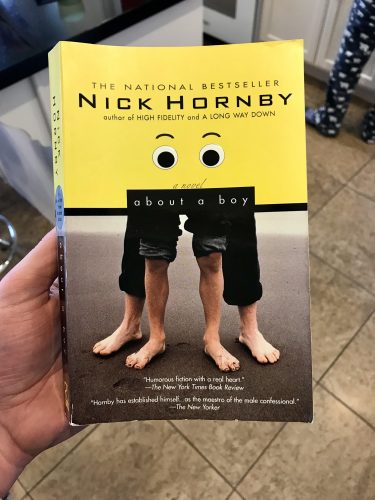 Having first seen the movie, I read Nick Hornby’s About a Boy over the holidays and am glad I did. Here’s what stood out:
Having first seen the movie, I read Nick Hornby’s About a Boy over the holidays and am glad I did. Here’s what stood out:
Four stars out of five.
Thanks to Adam (left), Nick (right), and everyone else who’s bought, read, reviewed, and/or recommended my new book on Kindle, paperback, and soon on audiobook (sample here).
After nearly 10 years in the making, I’m proud and honored that the book has finally released. Its contents changed my life, and I hope they can yours, too.
Thanks for reading.

Chetah State Park
I’ve blogged for 12 years and published more than 2000 posts to date. Below are my 10 favorites from 2017:
Bonus: Where is America on the gender equality scale?
Thanks for reading. Anyone been here for the full 12 years? If so, I’d like to buy you lunch.
Two weeks ago, I published Log Off: How to Stay Connected after Disconnecting on the world’s largest bookstore in both paperback and Kindle formats. Today I wanted to share what early reviewers are saying: Continue reading…
Big thanks to Randy Shore from the Vancouver Sun for his interest and recent write up of my new book.
The Internet and its insidious agent of attention-seeking — the smartphone — are by their very nature addictive, conspiring with our natural curiosity and brain chemistry to keep us rapt to the machine, according to Blake Snow, author of Log Off: How To Stay Connected After Disconnecting.
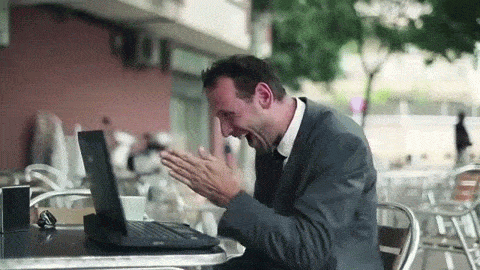
Excluding non-bylined writing for commercial clients, here’s what I published this month:
Printed version below for those behind a paywall. Continue reading…
In his first book, recognized journalist Blake Snow offers humorous, well-researched, and insightful advice on how to break free and enjoy renewed life offline
Provo, UT (December 19, 2017) – Do you or someone you know need a little help unplugging this holiday or new year? If so, Log Off: How To Stay Connected After Disconnecting by Blake Snow (ISBN 978-1973543749, 2017) may have the answer and is available now at the world’s largest bookstore in paperback, ebook, and audiobook editions.
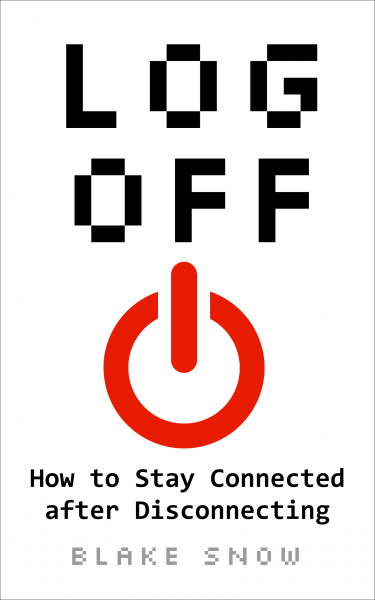 The self-help memoir and well-researched book is the first for Snow, a prolific writer for such publications as Wired, USA Today, CNN, and Wall Street Journal among others. The book produces convincing evidence and a path forward for people hoping to reclaim their offline lives without the constant distraction and “fear of missing out” caused by the internet, social media, and smartphones.
The self-help memoir and well-researched book is the first for Snow, a prolific writer for such publications as Wired, USA Today, CNN, and Wall Street Journal among others. The book produces convincing evidence and a path forward for people hoping to reclaim their offline lives without the constant distraction and “fear of missing out” caused by the internet, social media, and smartphones.
“With Facebook recently admitting as much, it’s official,” says Blake Snow, author of Log Off: How To Stay Connected After Disconnecting. “Excessive use of smartphones, the internet, and social media makes us miserable. Although I wrote this life-changing book for myself, I feel strongly that the ideas and encouragement contained therein can help others find greater fulfillment, peace of mind, and better relationships after responsibly logging off.”
In this quick but potent read, Snow recounts his own journey from being a workaholic internet addict, his awakening (aka “Montana Moment”), and the steps he has since taken to increase his facetime with actual people, do more offline with less online, double his productivity in half the time, and tunefully blend his analog and digital lives with no regrets. Continue reading…
I just published my first (albeit short) book on paperback and Kindle. It took me over eight years to publish it, but I’m very proud of the result.
As you can see, the book underwent a title change, but the contents remain the same—a self-help memoir on how to overcome excessive “internetting,” smartphoning, and social media. If that subject interests you, I hope you’ll consider taking one or all of the following actions: Continue reading…

I’m also happy to report that I met my deadline. In other words, interested readers will have either a soft or hard copy in their hands by Christmas day. Links to both coming Monday. Booya!
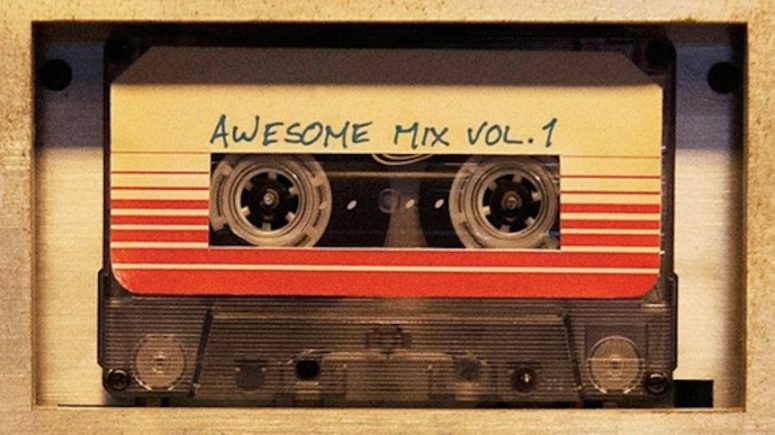
Courtesy Disney
Music is easy now. Except when I’m forced to download songs ahead of time before venturing Off The Grid, I can instantly play any track, genre, album or compilation of recorded music with a spoken command.
“Alexa, play the new Taylor Swift!” I bark. (Spoiler, it’s better than her last single.) “Alexa, play ‘All Night’ by Big Boi.” (It’s bumping.) “Alexa, play ‘Feel it Still’ by Portugal The Man.” (It’s choice.) “Alexa, play Waiting On A Song… Gone Now… or The Click”—all front-runners for album of the year.
Whatever I ask—even amorphous requests for “dinner music” or “relaxing classical”—this inanimate robot gets things right 90% of the time. And when I don’t feel like talking, I can play what I want with a few taps of my finger on the portable jukebox I carry in my pocket. We’ve come a long way.
But while I’m grateful for the limitless amount of audible convenience we now enjoy, I often wonder about the price we paid to get here. Continue reading…

When it comes to listening to music, I’m a skip-mastering control freak. I’m willing to let some records play, especially the greats. But if a band starts to bore me, I skip and/or eventually abandon their carefully curated playlist (aka “album”) with haste.
Recently, however, I discovered a band that I have never skipped—not once. They may be the coolest band you’ve never heard of. Only four of their six albums are commercially available, and I think they’re downright groovy, if not borderline inaccessible.
Hailing from french-speaking Quebec, the band is called Timber Timbre (pronounced “tamber”). The singer sings in english, rocks a “skullet,” and the entire acts sounds a little like Ennio Morricone, Johnny Cash, Magnet, a mellow Killers, Roy Orbison, Talking Heads, slow songs, The Doors, crooning songs, Late Night Tales, creepy songs, and Portishead. I only learned of them after visiting their home province earlier this month and am glad I did.
To spread the good word, I hope you’ll consider and enjoy their albums and soulful live performances as much as I have. These are my favorite songs:

The Digital Ruins of a Forgotten Future by Leslie Jamison profiles the last big thing that never was, namely Second Life, which went from millions of users at its peak a decade ago to a stagnated 600,000 a month today. These were my favorite excerpts from the remarkable long-form report:
In fairness, obscure Second Life users are no different than staged selfies or “real life” divisions such as watching a baseball game, daydreaming, or escaping into the bottomless ether of our smartphones, Jamison argues. But many committed Second Life holdouts seemingly live a perplexing (if not delusional) double life.
See also: Ready Player One

Related to the completion of my first book, that is. Continue reading…
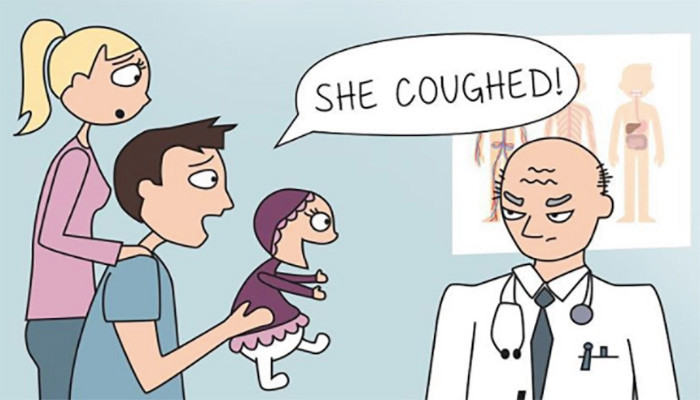
courtesy scary mommy
In many ways, modern parenting is a marked improvement over past generations. Many parents today are much more involved, supportive, gentle, and engaged in their children’s daily lives.
On the other hand, my wife and I have observed several not-so-good habits of contemporary parenting. They are as follows: Continue reading…

During a long overseas flight recently, I stumbled upon StoryCorps, a government-funded program to “record and preserve America’s stories.”
Mostly told by working-class, veteran, immigrant, and minority Americans, several of the below three-minute animated stories brought me to tears:
Hope you enjoy them as much as I did.
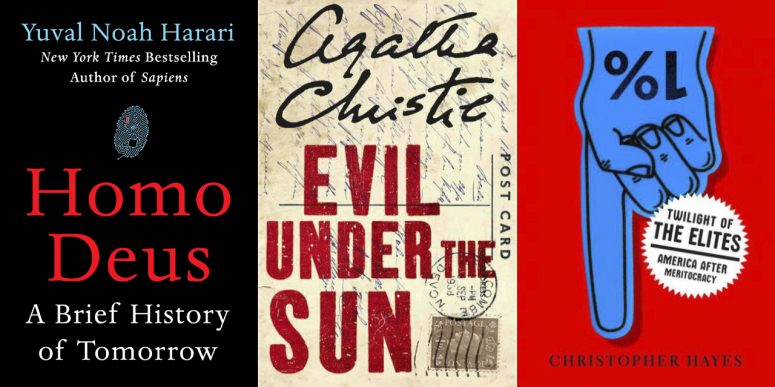
I finished three good books this month. Here are my thoughts on each: Continue reading…
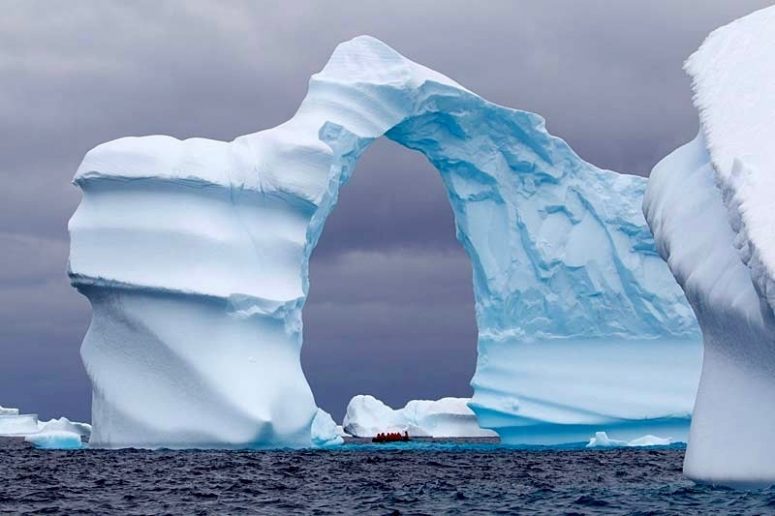
Credit: National Geographic
What luck we have. Not only were we born on the most marvelous planet in the observable universe—not to mention the only habitable one out of gazillions—but the one we did inherit has seven distinct, magnificent continents.
Picking just one experience from each that best personifies the greater landmass is an impossible job, not to mention totally unfair. But life isn’t fair. Nor is this column. If you need someplace to start when attempting to bag all seven continents, make it one of these iconic and universally well-rated encounters. Continue reading…
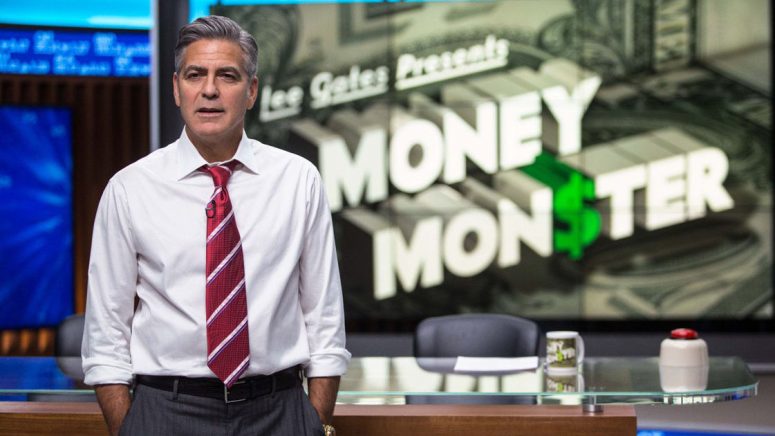
Courtesy MGM
If you’re reading this, I’m guessing you like money. What does money have to do with offline balance, though?
In my research, everything. Next to fame and sex—which by no coincidence are often facilitated by money—the latter is arguably the most sought after thing in life, particularly (but not exclusively) for male species.
For purposes of this newsletter, however, I won’t preach to you on the ill-guided focus of money or bottomless cup that is greed. Instead, I’ll let smarter people do it for me: Continue reading…

Courtesy Clay Wood
I just published my first story for Frommers, the storied travel guide magazine that changed the way Americans traveled in 1957 after Arthur Frommer published his seminal Europe on 5 Dollars a Day.
My story isn’t that big nor will it make nearly as many waves, but I’m still proud of it and the friends that made it possible by joining me recently on a weekend backpacking trip into the High Uinta Wilderness, which I deem “the best western wilderness you’ve never heard of.”
Hope you enjoy it.
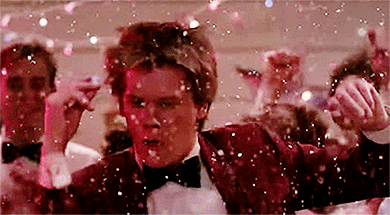
Eight years ago, I began an endeavor that I thought would take up to 12 months to complete: writing my first book. In reality, it took nearly eight full years.
In any case, I’m happy to report that I finished the 12 chapter non-fiction and short self-help book not 20 minutes ago. I’m proud of what I wrote and can’t wait to share it with the world soon after vetting it with editors, agents, and publishers.
Fun fact: it took my seven years to write the first 40% of the book and just a month to write the remaining 60%—because writer’s block.
As a teaser, I’ve included the opening chapter here. Hope you enjoy it and share this post with any you feel my be interested in what I have to say. Continue reading…
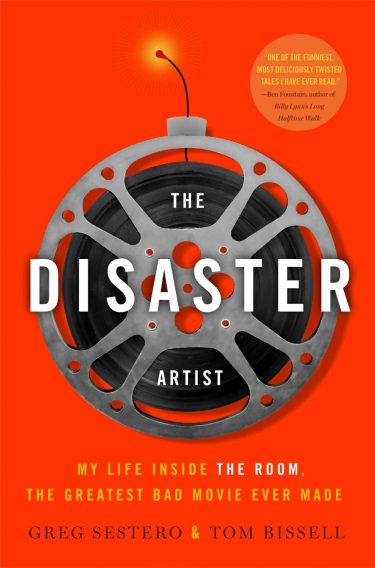
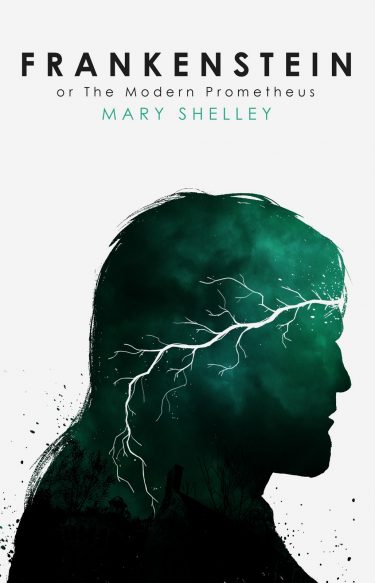 I devoured two wonderful books recently.
I devoured two wonderful books recently.
The first was Frankenstein by Mary Shelley, recommended by my sister Sara. Not to be mistaken for the horrific name, popular movie, and Halloween theme it inspired, the book is actually about what it’s like to be human. Masterfully written by Shelley when she was only 20 (!), Frankenstein made my heartbreak and made me ponder humanity more than another other book recently (save for this, this, and this).
Due to a few slow pages and an ending that abruptly stops (like most classical literature), I award it four stars out of five.
The second I read in less than 48 hours. It’s called The Disaster Artist: My Life Inside the Greatest Bad Movie Ever Made by actor Greg Sestero and journalist Tom Bissell. About the making of The Room (aka “The Citizen Kane of bad movies”), this book made me laugh out loud, cringe, and cheer on numerous occasions. I admire Sestero for his candor, for seeing the good in the world, for sharing his story, and for shining the spotlight on the conflicted, inspiring, and likable man named Tommy Wiseau. “What a story, Mark!”
For its hilarity and heart, I award it four stars out of five and anxiously await the movie adaptation starring James Franco.
These are my favorite passages from each: Continue reading…

courtesy reddit
An edited version of this story first appeared on April 5, 2016 in The Atlantic
Not long ago, I stumbled on a list of the best sci-fi novels according to the Internet (i.e. the highly entertaining computer geeks on Reddit). As someone who reads for pleasure as much as job security, I decided to finish as many of these and others that I could handle.
After completing over a dozen—not to mention many more in film adaptations—the following occurred to me: every single one of these acclaimed, futuristic stories—at least the many I was exposed to—completely missed the existence and impact of the Internet. Everything from published media and daily communication, to realizing sight unseen romance and access to global markets.
Why?
“A lot of science fiction was primarily focused on moving people and things around in exciting ways,” says technology commentator Clive Thompson. “These forward-thinkers were using flashy visuals to hook their readers, while understandably overlooking non-sexy things such as inaudible conversations.”
Which is largely what the Internet facilitates. Like electricity, it’s really just an everyday utility now. And utility talk is not plot. It’s boring. Continue reading…
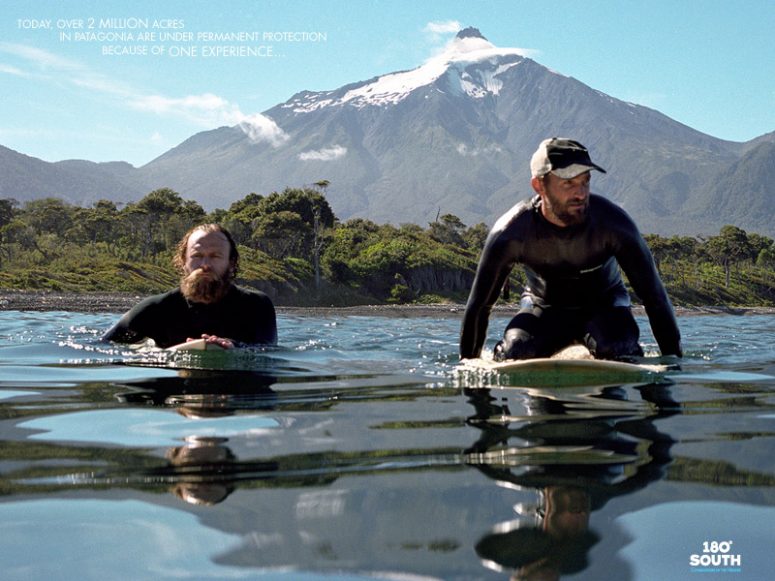
Courtesy Magnolia Pictures
I recently watched 180 Degrees South. It’s an enjoyable documentary by surfer, climber, and conservationist Chris Malloy, in which he follows the adventurous footsteps of his two mentors—Patagonia founder Yvon Chouinard and North Face founder Doug Tompkins.
This is what I took from the film: Continue reading…

Courtesy Lindsey Snow
Last month, Paste Magazine unexpectedly and suddenly shuttered their travel section and (along with it) my weekly column. After 126 consecutive and wonderful stories, the news was devastating.
More than just money (which admittedly wasn’t much), the perk-filled gig served as a weekly source of education, inspiration, and a renewed understanding of writing for mainstream audiences again. Furthermore, it took me and sometimes even my friends and family to five different continents, dozens of countries, countless destinations, and introduced me to hundreds of interesting people.
Although I’ve yet to find a replacement, I have some promising leads for the unpublished and upcoming articles in the pipe. And I’m determined and confident that I’ll be able to find a new suitor for my column, which was read by over 900,000 monthly individuals, according to a November 2016 estimate by the nation’s fourth largest tourism board (i.e. Visit Orlando).
Until then, here are the stories I am most proud of—the best of my travel column so far: Continue reading…
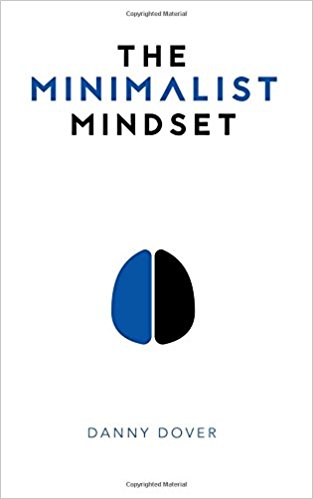 Earlier this year, I skimmed The Minimalist Mindset by Danny Dover. In my case, Dover was preaching to the choir. But I did enjoy two important points:
Earlier this year, I skimmed The Minimalist Mindset by Danny Dover. In my case, Dover was preaching to the choir. But I did enjoy two important points:
That said, I don’t endorse Dover’s recommendation to auto respond to all incoming emails with “I’m booked solid with previous commitments.” That’s a dick move. Just say, “No, thank you.” But I do like his recommendation to ask for a timed agenda before agreeing to a meeting and keeping meetings to a single day or slots per week (i.e. late afternoons only).
Three stars out of five.

Courtesy Focus Features
I did it again. I came oh-so-close to finishing a really long and critically-acclaimed literary classic before quitting it after three quarters completion.
I first did this 10 years ago with the unabridged version of The Count of Monte Cristo, a book by the masterful Alexander Dumas that features some of the most beautiful, if not poetic, prose I’ve ever had the pleasure of reading.
I did it again this spring with Leo Tolstoy’s Anna Karenina—an even more powerful book—which is widely regarded as the greatest novel ever written. So why did I abandon it after 640 pages out of 864 total? Continue reading…
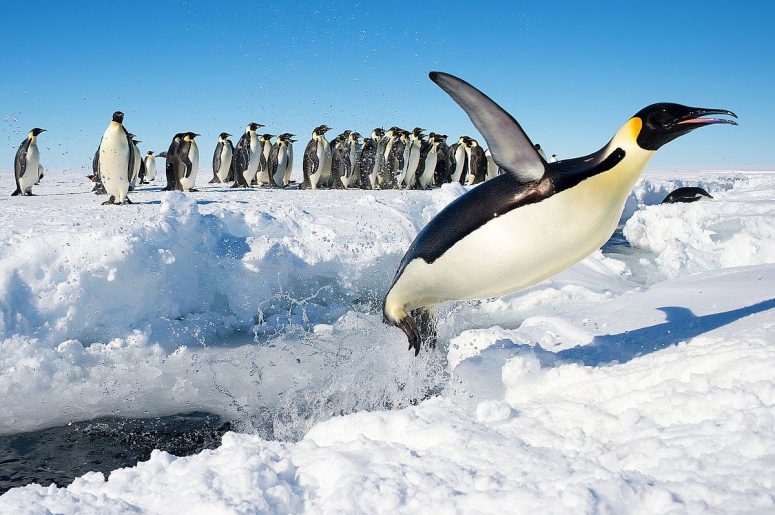
Credit: Wikimedia Commons
There are a lot of productivity myths. For instance, early birds are more productive, structure kills creativity, adding resources increases output, and more. Although well intentioned, these are all wrong.
So what works? What productivity hypotheses have been tested and proven by science? After sifting through dozens of top search results, reports, and studies, this is what I found. The most convincing, substantiated, and established productivity strategies: Continue reading…
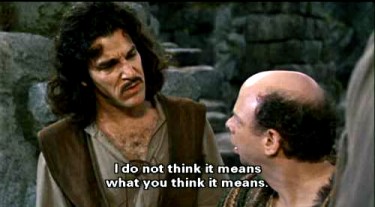
“The Princess Bride” 20th Century Fox
As a writer, I sometimes get reader mail.
Most of it relates to typos. Some of it relates to disagreement or additional viewpoints. On occasion, I even get fan mail—how lovely.
As for typo-related mail, most of that is really nice. “Hey, Blake. Enjoyed your story on [insert popular story here]. Noticed a typo, however, and thought I’d share.”
Some of it gives me the benefit of the doubt. “Hi, Blake. Perhaps your spellcheck mistakenly changed ‘espoused’ to ‘expelled’?”
“No, kind reader,” I’ll reply. “My bad diction stuck again. Thanks for keeping me honest.”
Still, some of the mail I receive is unforgiving. As if my mistakes should disbar me from contributing to mainstream media. As if I should master English before using it to articulate a point, tell a story, answer a question, or inspire change. Continue reading…
 For one reason or another—both personally and professionally—these companies can do almost no wrong in my eyes:
For one reason or another—both personally and professionally—these companies can do almost no wrong in my eyes:

Courtesy Chevrolet/Barry Staver
Excluding non-bylined commercial work, here’s what I published last month: